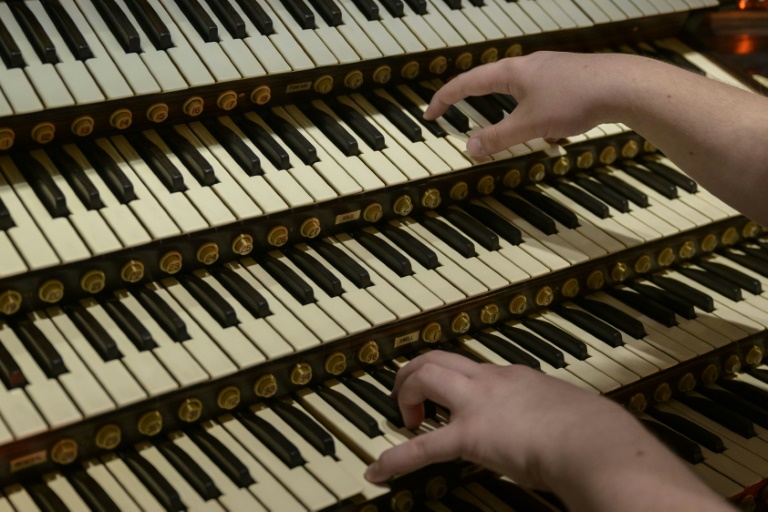
In 2008, screenwriter Ed Bennett-Coles described encountering a career “nadir”: he came across an article detailing how artificial intelligence had penned its inaugural screenplay.
More than 20 years later, he and his friend Jamie Hartman, a songwriter, have created a blockchain-based app aimed at helping writers, artists, and others take control of and safeguard their creations.
Hartman mentioned that AI is entering and replacing numerous job roles,” they stated. According to him, their application counters with “not quite… this domain belongs to us.
This is human, and we determine its value since we possess it.
The mounting threat posed by artificial intelligence hangs over both intellectual property and livelihoods throughout the creative sectors.
Their application, ARK, intends to record ownership of concepts and creations from their inception as an idea until completion: for instance, you can register a song demo just by uploading the file, as the developers clarified to .
Characteristics such as non-disclosure agreements, blockchain-based authentication, and biometric security protocols identify the file as being owned by the artist who shared it.
Colleagues could similarly log their individual inputs at various stages of the creation period.
“Bennett-Coles argued that ARK disputes the idea that solely the final outcome deserves value,” stated her partner as he concurred with a nod.
Hartman stated that the aim is to preserve “a process of human ingenuity and creativity, protecting it in such a way that one can still make a livelihood from it.”
– Systems of checks and balances –
Scheduled for a complete rollout in summertime 2025, ARK has obtained financial backing from the venture capital company Claritas Capital and is additionally collaborating strategically with BMI, the performance rights organisation.
For Hartman and Bennett-Coles, this process has involved extensive introspection about existence.
“I came across a quote yesterday that encapsulates it perfectly: ‘growth for growth’s sake is the ideology of the cancer cell,’” stated Bennett-Coles. “That’s essentially what AI represents.”
The business case for sales is always more swift, yet truly what we require is to rediscover our affection for the process once more.
He compared the distinction between human-generated art and AI-produced content to a scenario where a child goes with their grandfather to buy meat at the butcher’s shop, as opposed to simply ordering a piece of meat through an online delivery service.
The quality family time during the stroll to and from the store, along with the chats while doing chores, holds just as much significance as completing the purchase itself, according to him.
Similarly, “the journey Jamie takes in his car on the way to the studio could be just as crucial for composing that song as the time spent inside the studio.”
Artificial Intelligence, some argue, diminishes the creative process, something they believe ARK aims to reinstate.
“It serves as a check and a balance on behalf of the human being,” Hartman stated.
-‘ Rise from the embers’
The developers behind ARK mentioned that they opted for the application to be built on a blockchain due to its decentralization, as this would allow data to be stored across a distributed digital ledger.
“To grant the creator independence and authority over their intellectual property and mastery of their future, decentralization is essential,” Bennett-Coles stated.
Application users will be charged for ARK based on a tiered system, with price levels set according to their storage requirements.
The scriptwriter elaborated that they aim for ARK to be recognized in a court of law as either a “blockchain recording” or a “smart contract,” describing it as “a consensus mechanism.”
Certainly, copyright is quite a sound idea — provided you can verify it and back it up,” Hartman noted, yet he also mentioned that “the registration procedure has remained rather outdated for quite some time now.
“Why not make progress in copyright, as far as how it’s proven?” he added. “We believe we’ve hit upon something.”
Both creatives mentioned that their respective sectors have lagged behind in addressing the swift expansion of AI technology.
Bennett-Coles suggested that much of this response needs to begin with the artists going through their own “moment of death,” akin to what he went through several years back.
He stated, ‘From there, they have the ability to emerge from the ruins and determine what actions should be taken.’
What steps should we take to safeguard and uphold the activities we cherish and the values that matter to us?
mdo/st

